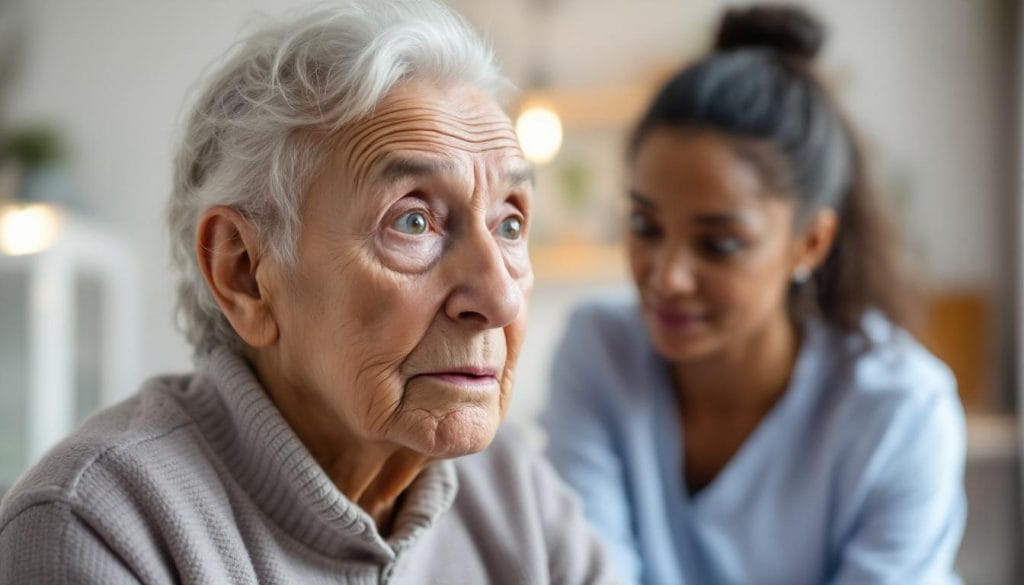Understanding In-Home Companion Care
In-home companion care is a service designed to provide support and companionship to individuals who may be experiencing difficulties with daily activities. This type of care is particularly beneficial for seniors, individuals with chronic illnesses, or those recovering from surgery. The goal is to enhance the quality of life and ensure that individuals remain safe and comfortable in their own homes. Caregivers often engage clients in meaningful conversations, assist with light housekeeping, and provide help with meal preparation, all while fostering a sense of companionship that can significantly reduce feelings of loneliness and isolation.
While many people cherish their independence, there comes a time when additional assistance becomes necessary. Recognizing the signs that indicate the need for in-home companion care can be challenging. However, being proactive about these changes can lead to better outcomes and a more fulfilling life. Common indicators may include difficulty with mobility, forgetfulness, or a noticeable decline in personal hygiene. Family members and friends often play a crucial role in identifying these changes, and open communication about the need for support can help ease the transition into receiving care.
In-home companion care is not just about physical assistance; it also encompasses emotional support. Companions can engage clients in hobbies, read together, or even accompany them on outings, which can help maintain social connections and stimulate mental engagement. This holistic approach to care recognizes that emotional well-being is just as important as physical health. Moreover, many companion care services offer tailored programs that cater to the unique interests and preferences of each individual, ensuring that the care provided is not only functional but also enriching.
Additionally, the flexibility of in-home companion care allows for a customized schedule that fits seamlessly into the client’s lifestyle. Whether it’s a few hours a week or daily support, caregivers can adapt their services to meet the evolving needs of their clients. This adaptability is particularly beneficial for families who may have fluctuating schedules or those who are navigating the complexities of chronic illness. By providing a dependable source of companionship and assistance, in-home companion care can empower individuals to maintain their dignity and independence for as long as possible.
Sign 1: Increased Loneliness and Isolation
Loneliness can have profound effects on mental and physical health. If you notice that a loved one is spending more time alone, has withdrawn from social activities, or expresses feelings of sadness, it may be time to consider in-home companion care.
Companion caregivers provide much-needed social interaction, helping to alleviate feelings of isolation and loneliness. They can engage in conversations, play games, or even accompany your loved one on outings, fostering connections that can enhance emotional well-being.
Recognizing Signs of Isolation
It’s important to be aware of the subtle signs that indicate loneliness. Look for changes in behavior such as a lack of interest in hobbies, neglecting personal hygiene, or a decline in communication with family and friends. These changes can signal that a loved one may benefit from companionship.
Sign 2: Difficulty with Daily Activities
As individuals age or face health challenges, they may struggle with everyday tasks that were once manageable. This can include difficulties with cooking, cleaning, bathing, or managing medications. If you observe that your loved one is having trouble completing these tasks, it may be time to explore in-home companion care.
Companion caregivers are trained to assist with these activities, ensuring that your loved one maintains their dignity while receiving the help they need. This support not only promotes safety but also encourages independence in a nurturing environment.
Assessing Daily Living Skills
Evaluate how well your loved one is managing their daily routines. Are they eating balanced meals? Are they keeping their living space tidy? If the answer is no, it might be a sign that they require assistance. In-home companion care can provide the support necessary to help them regain control over their daily lives.
Sign 3: Memory Loss or Cognitive Decline
Cognitive decline can be one of the most challenging aspects of aging. If you notice that your loved one is becoming forgetful, misplacing items, or struggling to follow conversations, these could be indicators of memory issues. In-home companion care can play a vital role in providing cognitive support and companionship.

Caregivers can help stimulate mental activity through engaging conversations, memory games, and other activities designed to keep the mind sharp. This companionship can also provide reassurance and comfort during moments of confusion or anxiety.
Understanding Cognitive Changes
It is essential to differentiate between normal age-related memory changes and more serious cognitive decline. If your loved one is experiencing significant memory loss that affects their daily life, seeking professional assistance through in-home companion care may be beneficial.
Sign 4: Declining Physical Health
Physical health can deteriorate for a variety of reasons, including chronic illness, injury, or simply the natural aging process. If your loved one is experiencing frequent falls, has difficulty walking, or shows signs of weight loss, it may be time to consider in-home companion care.

Companion caregivers can assist with mobility, ensuring that your loved one remains safe while moving around their home. They can also help prepare nutritious meals, monitor health conditions, and provide encouragement for physical activity, all of which contribute to better overall health.
Monitoring Physical Changes
Keep an eye on any changes in your loved one’s physical condition. Are they becoming less active? Are they expressing pain or discomfort? These signs can indicate that they need additional support to maintain their health and safety at home.
Sign 5: Changes in Mood or Behavior
Emotional well-being is just as important as physical health. If you notice significant changes in your loved one’s mood, such as increased irritability, anxiety, or withdrawal, these could be signs that they are struggling with their emotional health. In-home companion care can provide the support needed to address these changes.
Caregivers can offer companionship, engage in meaningful conversations, and provide emotional support, helping to lift your loved one’s spirits. This connection can be invaluable in managing feelings of sadness or frustration.
Identifying Emotional Distress
Pay attention to how your loved one expresses their feelings. Are they more anxious than usual? Do they seem to lose interest in activities they once enjoyed? Recognizing these signs early can help in seeking the appropriate support through in-home companion care.
Sign 6: Safety Concerns at Home
Home should be a sanctuary, but it can also become a place of risk as physical abilities decline. If you are concerned about your loved one’s safety, such as leaving the stove on, forgetting to lock doors, or falling, this is a critical sign that in-home companion care may be necessary.

Companion caregivers can provide supervision and assistance, ensuring that your loved one is safe and secure in their home environment. They can also help implement safety measures, such as removing tripping hazards or installing grab bars in bathrooms.
Evaluating Home Safety
Take a close look at your loved one’s living space. Are there any potential hazards? Is the home adequately equipped for their needs? Addressing these concerns with the help of a caregiver can significantly enhance safety and peace of mind.
Sign 7: Family Caregiver Burnout
Caring for a loved one can be a rewarding experience, but it can also be incredibly demanding. If family members are feeling overwhelmed, stressed, or burned out, consider bringing in professional in-home companion care. Recognizing the need for help is not a sign of failure; rather, it is an acknowledgment of the complexity of caregiving.
In-home companion care can provide much-needed respite for family caregivers, allowing them to recharge and focus on their own well-being. This support can lead to better care for the loved one and a healthier family dynamic.
Recognizing Caregiver Fatigue
Be aware of the signs of caregiver fatigue, such as irritability, sleep disturbances, or a decline in personal health. If these signs resonate, it is crucial to seek assistance through in-home companion care to ensure that both the caregiver and the loved one receive the support they need.
Making the Decision for In-Home Companion Care
Deciding to seek in-home companion care can be a significant step for both the individual needing care and their family. It is essential to approach this decision with compassion and understanding. Open communication with your loved one about their needs and preferences is critical.
Consider involving them in the decision-making process, as this can help them feel more in control and respected. Discuss the benefits of companionship and how it can enhance their quality of life. This collaborative approach can facilitate a smoother transition and enhance the overall experience.
Finding the Right Caregiver
When the decision is made to pursue in-home companion care, it is vital to find the right caregiver. Look for someone who not only has the necessary qualifications but also shares similar interests and values with your loved one. A good match can make all the difference in creating a positive and supportive environment.
Conclusion: Embracing Support and Compassion
Recognizing the signs that indicate the need for in-home companion care can be challenging, but it is an essential step toward ensuring the well-being of your loved one. By being attentive to their needs and seeking help when necessary, families can foster a supportive environment that promotes independence and happiness.
In-home companion care is not just about assistance; it is about building meaningful connections and enhancing quality of life. Embrace the support available, and remember that seeking help is a sign of strength, not weakness. Together, families can navigate the journey of aging with compassion and grace.
Discover Compassionate In-Home Care with Interim HealthCare of La Jolla
If you’ve recognized any of the signs mentioned in this article within your loved ones, it’s time to take the next step. Interim HealthCare of La Jolla is here to support you with our Home Life Enrichment program, designed to enhance well-being and independence. Our nurse-owned, family-oriented approach ensures that every individual receives the highest level of professional care, compassion, and dedication. Let us help you create a nurturing environment for your loved ones, where they can thrive and maintain their quality of life. Learn more about how our team can make a positive impact on your family’s life.
Author

With over 20 years of experience as a Registered Nurse (RN), my journey has always been rooted in a deep passion for helping others. As a wife and mother, I've found that caring for those around me is second nature. Growing up in La Jolla and serving our community for the past 15+ years at a local hospital has given me a unique understanding of San Diego's healthcare needs. My dedication and expertise are focused on enhancing the well-being of our residents, especially our cherished elderly neighbors. My background as a registered nurse ensures that our company's services adhere to the highest standards of medical care and professionalism.
View all posts



